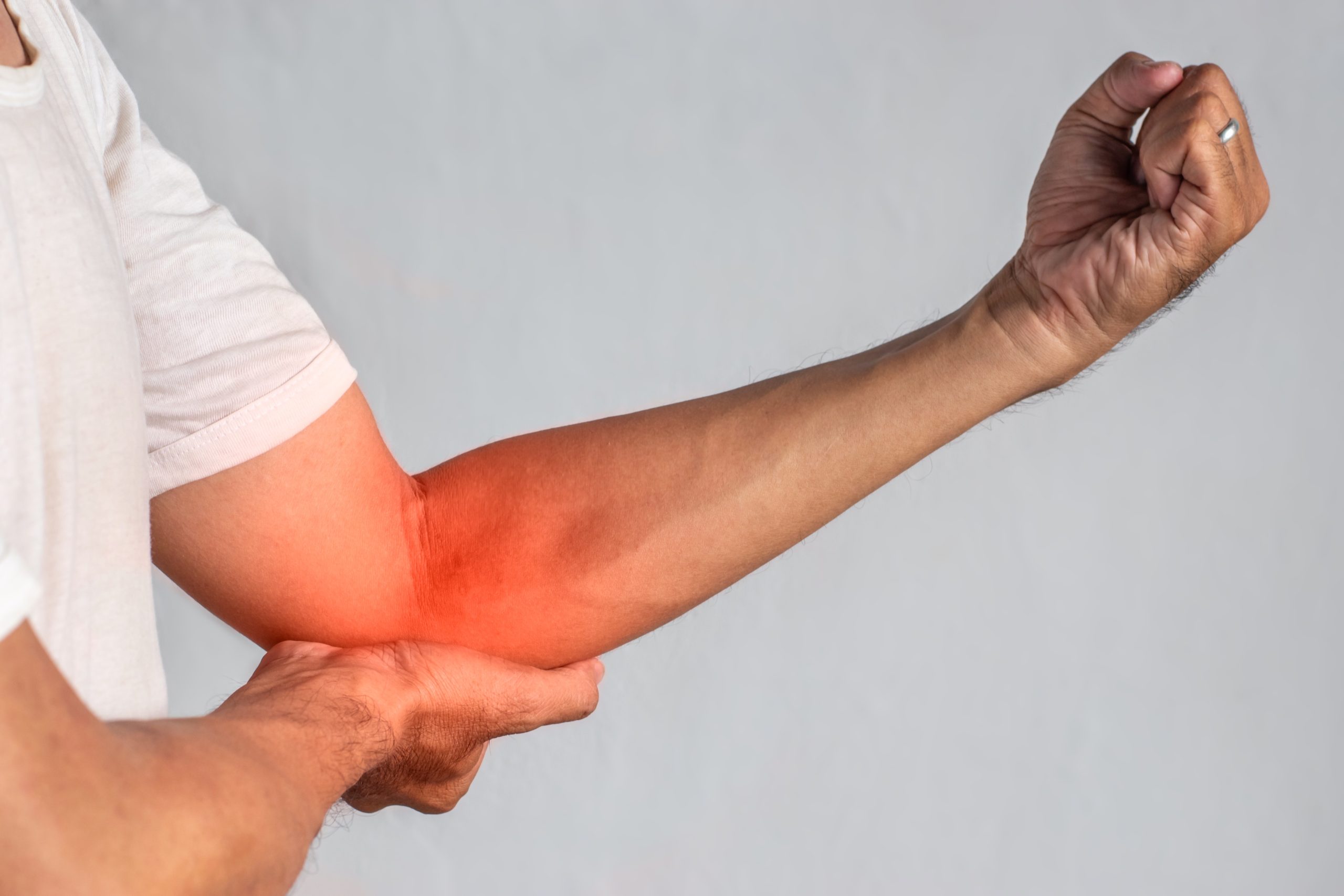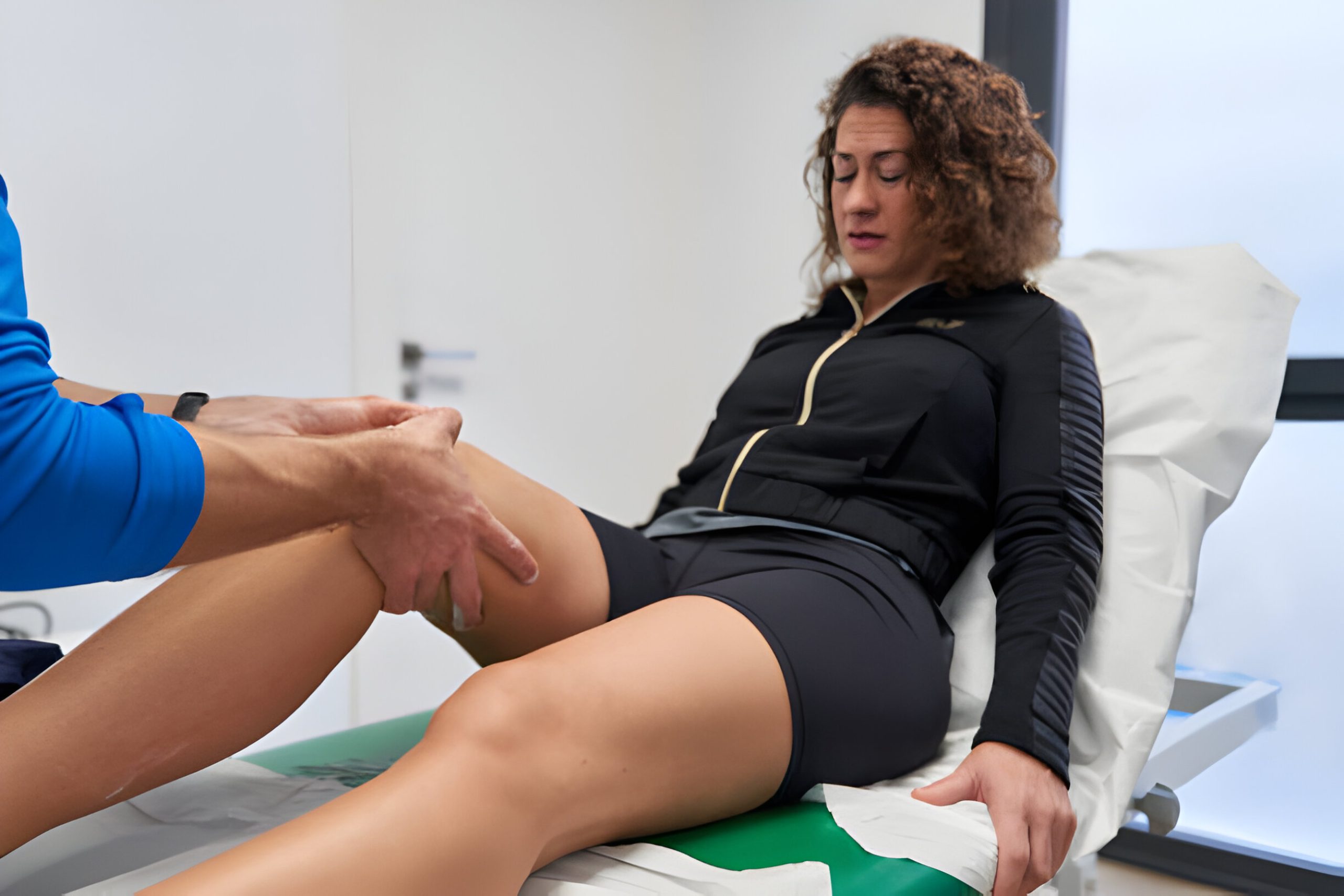 In the dynamic landscape of modern medicine, breakthroughs and innovative treatments emerge consistently, offering relief and hope to patients around the world. Veda Medical, with its commitment to leading-edge solutions and patient-centric care, has positioned itself at the forefront of such advancements. Particularly noteworthy is their approach to Cubital Tunnel Syndrome (CuTS) treatments, which promises to redefine how medical professionals understand and address this common condition.
In the dynamic landscape of modern medicine, breakthroughs and innovative treatments emerge consistently, offering relief and hope to patients around the world. Veda Medical, with its commitment to leading-edge solutions and patient-centric care, has positioned itself at the forefront of such advancements. Particularly noteworthy is their approach to Cubital Tunnel Syndrome (CuTS) treatments, which promises to redefine how medical professionals understand and address this common condition.
Understanding Cubital Tunnel Syndrome
Cubital Tunnel Syndrome, often overshadowed by its more widely recognized counterpart, Carpal Tunnel Syndrome, is a condition that arises due to increased pressure on the ulnar nerve, which travels down the arm and is most vulnerable at the point where it passes behind the inner part of the elbow. Commonly referred to as the “funny bone”, this nerve, when pinched or entrapped, can lead to a range of symptoms including pain, numbness, and tingling in the arm and fingers, particularly the ring and little fingers. Various factors can contribute to the development of CuTS. These include prolonged bending of the elbow (such as during sleep or while holding a phone), repetitive activities that put a strain on the ulnar nerve, and even anatomical irregularities that might compress the nerve. Without timely and appropriate treatment, the condition can lead to muscle wasting in the hand, reduced grip strength, and in severe cases, permanent nerve damage.
Traditional Approaches and Their Limitations
Traditionally, the primary treatments for CuTS have ranged from non-surgical interventions to surgical procedures aimed at relieving the pressure on the ulnar nerve. Non-surgical treatments often involve the use of elbow braces or splints to keep the elbow straight, anti-inflammatory medications, nerve gliding exercises, and modifications in daily activities. When these measures fail to offer relief or when the nerve compression is severe, surgical options come into play. These typically involve procedures to release the nerve, move the nerve to the front of the elbow, or remove part of the bone to create more space. While these treatments can be effective, they come with their own set of challenges. Recovery from surgery can be prolonged, and like all invasive procedures, it carries risks such as infection, nerve damage, and complications related to anesthesia. Moreover, the success rate varies, and not all patients find long-lasting relief.
Veda Medical’s Approach: Blending Technology and Medical Expertise
Recognizing the challenges inherent in conventional treatments, Veda Medical embarked on a mission to develop a more holistic, efficient, and patient-friendly approach to CuTS treatment. Central to their strategy is the amalgamation of state-of-the-art technology with deep medical expertise. Veda Medical’s proprietary treatment protocol for CuTS employs a combination of advanced imaging techniques, minimally invasive procedures, and post-treatment rehabilitation measures. Through the use of real-time imaging, their specialists can accurately pinpoint the exact location and extent of nerve compression. This precision is critical, as it allows for targeted interventions, minimizing collateral damage to surrounding tissues. One of the standout features of Veda Medical’s treatment regime is their focus on minimally invasive procedures. These procedures, guided by high-resolution imaging, involve making small incisions, through which specialized instruments are introduced to release, reposition, or cushion the ulnar nerve. The benefits of this approach are manifold: reduced trauma to tissues, shorter hospital stays, faster recovery, and minimized scarring. Post-procedural care at Veda Medical is as meticulously planned as the treatment itself. Recognizing that the journey to full recovery extends beyond the procedure, they offer customized rehabilitation programs. These programs, crafted in collaboration with experienced physical therapists, focus on restoring range of motion, strength, and functionality, ensuring that patients can return to their daily activities without hindrance.
Patient-Centric Care: The Veda Medical Difference
At the heart of Veda Medical’s approach to CuTS treatment lies a deep commitment to patient-centric care. They understand that every patient is unique, with distinct needs, concerns, and aspirations. This philosophy translates into a highly personalized treatment experience. From the first consultation, patients are ushered into an environment of empathy, transparency, and collaboration. Comprehensive diagnostic evaluations are conducted to gauge the severity of the condition, and based on these findings, tailored treatment plans are proposed. The emphasis is always on ensuring that patients are well-informed and comfortable with every aspect of their care journey. Furthermore, Veda Medical’s dedication to continuous research and innovation means that they are always on the lookout for even better ways to address CuTS. They actively engage with the global medical community, sharing insights, learning from peers, and staying updated with the latest advancements in the field.
Setting the Stage for the Future of CuTS Treatments
While Cubital Tunnel Syndrome may not be life-threatening, its impact on quality of life can be profound. Simple tasks like holding a book, typing, or even shaking hands can become arduous, and the constant pain and discomfort can be mentally taxing. Therefore, the quest for effective treatments is not just a medical challenge but a deeply humanitarian one. Veda Medical’s pioneering approach to CuTS offers a glimpse into the future of treatments. By marrying cutting-edge technology with medical acumen, they are setting new benchmarks in care quality. Moreover, their unwavering focus on patient welfare and their openness to innovation signals a paradigm shift in how medical care should be conceptualized and delivered. As more patients and medical professionals become aware of Veda Medical’s transformative treatments for CuTS, it is poised to change the narrative around this condition. The hope is that, in the not-too-distant future, Cubital Tunnel Syndrome will cease to be a debilitating condition, but rather a manageable one, with a clear path to complete recovery. The world of medical advancements often hinges on a delicate balance between innovation and tried-and-true methodologies. Veda Medical’s approach to treating Cubital Tunnel Syndrome epitomizes this balance. By integrating the latest technological advancements with established medical practices, Veda Medical not only offers a beacon of hope to patients but also challenges the medical community to continuously evolve and adapt.
A Multifaceted Approach to Healing
Beyond just the physical procedures and treatments, Veda Medical understands that true healing is multifaceted. CuTS, like many medical conditions, doesn’t just affect the body—it also has psychological and emotional ramifications. Persistent pain, loss of functionality, and the accompanying frustrations can lead to feelings of helplessness, anxiety, and even depression. Recognizing this interconnectedness, Veda Medical’s treatment protocols incorporate holistic care, aiming to address the patient’s well-being in its entirety. This integrated approach encompasses not only physical rehabilitation but also counseling and mental health support. Patients are provided resources and guidance to cope with the mental strain that often accompanies chronic conditions. Whether it’s through one-on-one counseling sessions, support groups, or mindfulness and relaxation techniques, the focus remains on ensuring patients emerge from their treatment journey feeling healed, both physically and mentally.
Harnessing Technology for Enhanced Patient Experience
Veda Medical’s commitment to offering top-tier patient experiences is evident in their use of technology not just for treatments but also for enhancing overall patient interaction. From seamless online appointment scheduling systems to virtual consultations, they ensure that accessing care is as straightforward and hassle-free as possible. The incorporation of telemedicine solutions, particularly, stands out as a testament to their forward-thinking approach. In today’s age, where convenience is paramount, being able to consult with healthcare professionals remotely is invaluable. For CuTS patients, who might already be dealing with mobility challenges, this can be a game-changer.
Collaborative Care: Engaging the Broader Medical Community
Veda Medical’s journey in revolutionizing CuTS treatments isn’t undertaken in isolation. They believe in the power of collaborative care. By forging partnerships with specialists from diverse medical fields, they ensure that patients benefit from a vast reservoir of combined expertise. From neurologists to orthopedic surgeons and from pain management specialists to physiotherapists, the collaborative care model ensures that all aspects of the condition are addressed comprehensively. This synergy not only augments the quality of care but also fosters an environment of continuous learning and mutual growth among medical professionals.
Research and Continuous Advancement
Central to Veda Medical’s ethos is the belief that medical care should never stagnate. With rapid advancements in medical science and technology, staying updated is not just desirable but essential. To this end, they invest significantly in research and development. Ongoing clinical trials, patient feedback analysis, and engagement with emerging technologies form the bedrock of their R&D initiatives. By actively seeking out novel methodologies, tools, and technologies, Veda Medical ensures that their treatment protocols for CuTS remain state-of-the-art.
The Road Ahead for Cubital Tunnel Syndrome Care
The journey of medical advancement is ongoing, with every breakthrough laying the foundation for the next. Veda Medical, with its innovative approach to CuTS treatments, has already made significant strides. However, they recognize that the road ahead is long and filled with challenges and opportunities alike. By consistently pushing the boundaries of what’s possible, Veda Medical is not just changing the trajectory of CuTS treatments but also inspiring the broader medical community. Their work serves as a reminder that at the heart of medical innovation lies a simple, unchanging truth: the well-being of the patient is paramount.
As more and more medical institutions and professionals take note of Veda Medical’s success, it heralds a future where Cubital Tunnel Syndrome is not only better understood but also more effectively and holistically treated. The fusion of technology, medical expertise, and a genuine commitment to patient welfare promises a brighter, pain-free future for countless individuals plagued by this condition.




